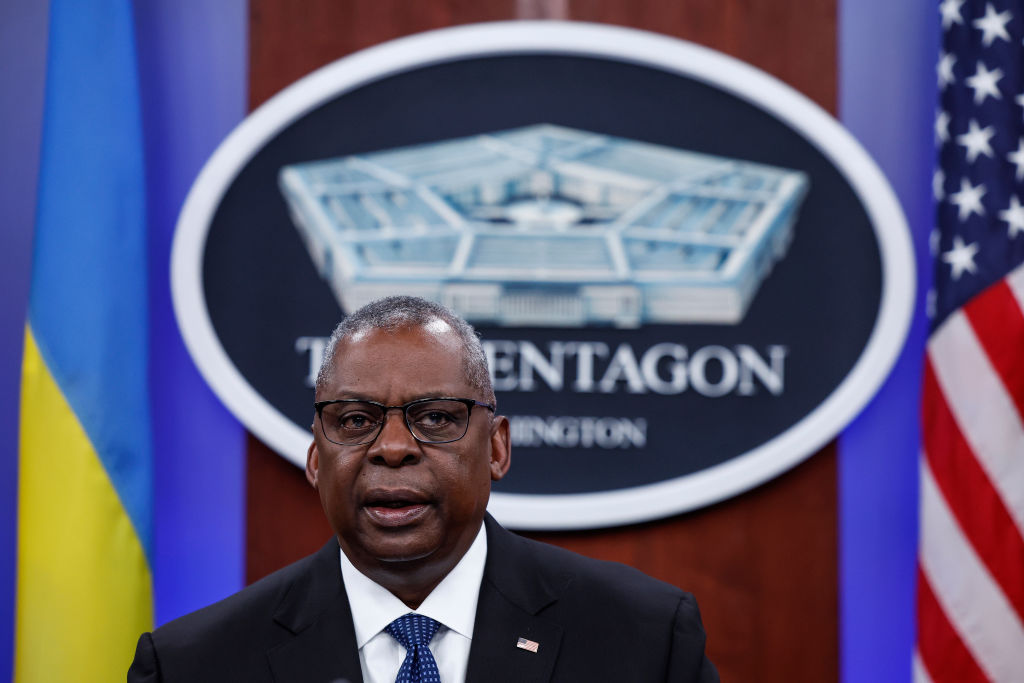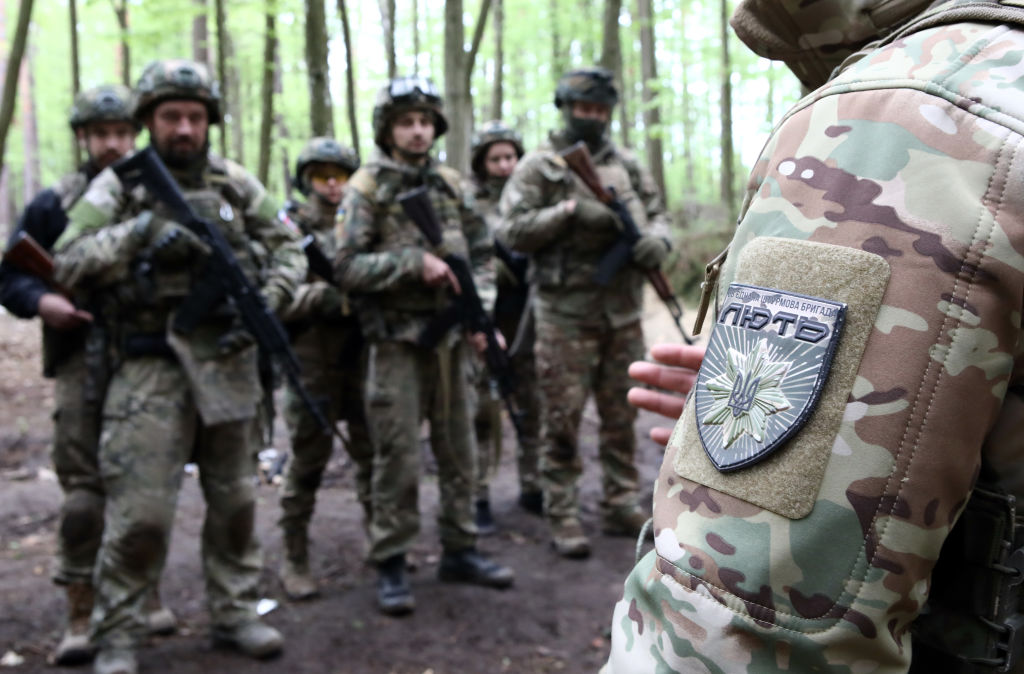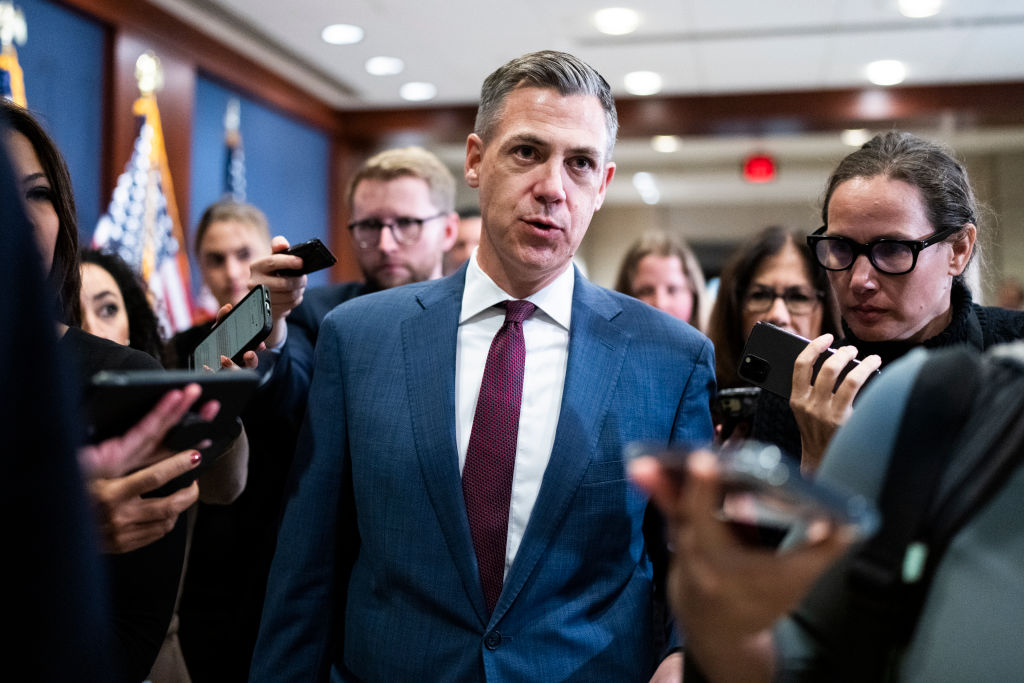His latest scandal is the capstone of an abysmal tenure.
Competence, Not Quotas

Officer selection and training cannot be placed at the service of the diversity regime.
David Lewis Schaefer argues that a diverse military is more effective because equal racial representation between the officer corps and enlisted ranks will diminish racial tension and lead to more responsive chains of command. To Schaefer, this supposed national security imperative is enough to justify vague “diversity considerations” the military academies theoretically apply to admissions. But Schaefer’s thesis fails to account for the extreme, quota-based racial admissions policies of the nation’s service academies, while also missing the toxic effect of diversity imperatives on military proficiency and cohesion.
Schaefer insists it is “reasonable for service academies…to take account of racial diversity” in composing classes of officers. This is a typical euphemism which shrouds the reality of military diversity policy. In a throwaway aside, Schafer insists that “by no means…must the proportion of black officers…be precisely proportionate to the number of black service members.” But exact proportionality is the stated goal of West Point’s race-based quotas for each admissions class.
In a July 2023 hearing in front of the House Armed Services Subcommittee on Military Personnel, Lieutenant General Steven Gilland admitted to “racial goals” when Congressman Jim Banks presented a decade’s worth of evidence about West Point’s drive to inject race into the admissions process. This is a far cry from mere “consideration” of diversity. Either West Point’s “goals” are theatrical, or they are precisely the percentage-based quotas Schaefer considers unacceptable.
The existence of race-based quotas also undermines the genteel insistence that racially diverse military units are somehow more cohesive and effective. The only shred of evidence Schaefer offers in support of this claim is the supposed relationship between racial tension and the lack of black officer representation in the Vietnam-era American Army. A more reasonable examination of Vietnam-era racial tensions does not support race-based quotas and other “diversity considerations” in 2023.
In the late sixties and early seventies, black soldiers unquestionably perceived disparities in promotion and leadership positions, but a historian cannot extract the accompanying racial chaos in the Vietnam-era military from the society-wide racial tension of the civil rights era. It is more likely that racial violence in the armed forces followed the trends of unrest in civil society, rather than being born of dissatisfaction with military personnel policy. In a 2017 New York Times essay, historian Gerald Goodwin admitted “incidents of racial tension were uncommon in the early years of the war, but following [Martin Luther] King’s assassination, they became a weekly if not daily occurrence.”
Samuel P. Huntington warned against the collusion of the ideals of military professionalism with the “politics and ideologies” of civil society. When the Army rapidly accelerated racial integration through a draft to fight a historically unpopular war during the greatest period of domestic racial tension of the 20th century, the subsequent racial violence was hardly a surprise. It is nothing short of absurd to believe the sort of “diversity considerations” Schafer believes West Point applies today would have meaningfully tilted the balance of racial tension.
It is more plausible to argue that the Pentagon’s insistence on diversity under Biden has created the conditions where quota-based advancement guarantees distrust and sows racial tension. The Army claims, based on its own secret research, that fear of racial discrimination is the cause of low enlistment. This comes amidst the Left’s broader insistence that America has grown more racist as the cultural imperative to dismantle racism has become more dominant. The Army’s Diversity Task Force Report is littered with citations from corporate HR studies about inclusion and the workplace, and scant evidence of their applicability for military units. In fact, there is ample evidence that diversity training in any professional domain can backfire and lead to greater disharmony.
Schaefer believes that if the Army ensures more equal representation of black officers compared to black enlisted soldiers, there will be less of a “sentiment” of distrust and angst among apparently unruly racial subgroups. This infantilizing narrative undermines the unit cohesion that sets the military apart from the corporate world the Army uses to justify its own diversity policy. Schaefer is convinced that academia should not scorn proportional racial representation, but demands that the U.S. military sacrifice the sanctity of merit in order to placate the hypothetical feelings of black soldiers, sailors, airmen, and Marines.
Schaefer does not cite any surveys of black servicemen, nor does he include a study on the comparative combat effectiveness of diverse units. But that’s not a criticism of him, because no such research exists. The military’s diversity delusion is based on corporatese and platitudes about unit cohesion.
Conservatives should support Students for Fair Admissions’ lawsuit against West Point. Conservatives should also stand for a military built exclusively on merit and experience that lends itself to competence. This is the foundation of a military that won two World Wars, and is rooted in the professional officer ethic. To inject race into officer selection and training is to compromise military competence.
While Chief Justice John Roberts exempted service academies from the Supreme Court’s decision in SFFA v. Harvard, his logic should guarantee that the military does not become a proving ground for sociological experimentation. In recognizing “distinct national security interests,” Roberts implicitly affirms the Huntington-esque thesis that the military must be seen as an institution separate from civil society, not subject to civilian social demands. Roberts’ exclusion of the service academies from his decision hardly grants the case that diversity somehow serves the goal of military cohesion.
In his book Soldier and the State, Huntington details the cases of numerous militaries, from 18th century France to 20th century Russia, which have sacrificed military professionalism for extraneous ideological considerations. The long and troubling history of militaries that placed politics over competence ought to dissuade us from permitting the rot of racial equitarianism to infect our national security priorities.
The American Mind presents a range of perspectives. Views are writers’ own and do not necessarily represent those of The Claremont Institute.
The American Mind is a publication of the Claremont Institute, a non-profit 501(c)(3) organization, dedicated to restoring the principles of the American Founding to their rightful, preeminent authority in our national life. Interested in supporting our work? Gifts to the Claremont Institute are tax-deductible.
Kiev is desperate for the West to come to its rescue.
The Biden Administration would like to end the tradition of generational military service.
A recent publicity photo from the Navy tells us more than we wanted to know about military readiness.
Restoring pride in the military will require a massive effort.
The latest National Defense Authorization Act is a step in the right direction.






